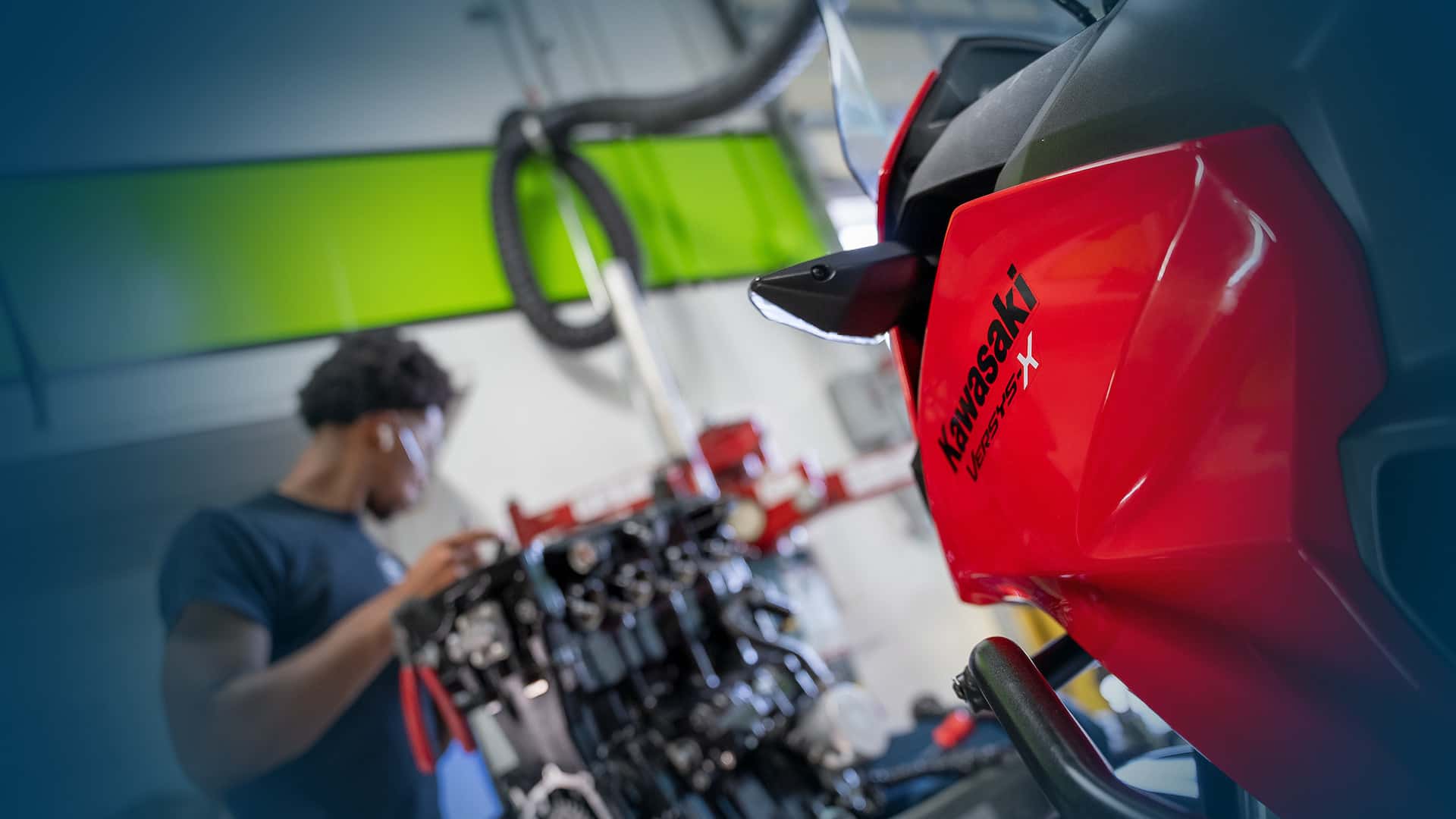Diesel engines are tough and efficient. Wouldn’t it make sense to use them for high-powered motorcycles?
That question seems to call out an obvious problem in motorbike manufacturing. But here's the thing — diesel engines are not built for bikes.
If you’re serious about motorcycles or thinking of becoming a motorcycle technician, understanding engine design is key. That way, you can understand why certain parts — and fuels — don’t make sense in the real world.
Let’s break down why gas engines in motorcycles are common, but diesel engines? Not so much.

1. Size and Weight
Motorcycles are built for balance and control. They rely on being lightweight and compact so they can turn, lean and move easily.
Diesel engines, on the other hand, are large and heavy. They’re designed for trucks and equipment, not small, two-wheeled frames.
Installing one would throw off the balance and design of most motorcycles, making them hard to ride safely.
2. Underperformance
Motorcycles depend on quick response and high RPMs. Riders expect to accelerate fast and switch speeds easily.
Diesel engines don’t offer that kind of performance. They’re good at low-end torque, but fall short when it comes to horsepower and speed.
For a bike, that means slow takeoff, poor throttle response and less overall control.
Read: Motorcycle Won’t Start? Here’s How to Troubleshoot It
3. Technical Limitations
Diesel engines fire through compression ignition, which creates loud knocking and high vibration. That’s hard to manage on a small frame. They also don’t handle cold starts well and tend to idle roughly, which can make city or short rides less comfortable.
Simply put, these engines were never designed with motorcycles in mind.
4. High Cost
Diesel engines are built to handle more stress, so they’re made from tougher (and heavier) parts. That makes them more expensive than gas engines. On top of that, redesigning a motorcycle to fit a diesel engine would require major changes in structure, cooling and fuel flow.
That extra cost doesn’t offer enough benefit to make it worthwhile for manufacturers — or riders.
Read: Motorcycle Final Drives: What They Are and How They Work
5. Wear and Tear
Because diesel engines operate under higher compression, they tend to wear down faster if not maintained carefully. For a motorcycle owner, that means more frequent oil changes and extra upkeep. Not ideal for something designed to be quick, efficient and low-hassle.
6. Lack of Accessibility
Most gas stations don’t have diesel at every pump. And because motorcycles have small tanks, they need to refuel more often than cars.
That means more stops and fewer places to fill up. It’s another reason why diesel simply doesn’t fit the lifestyle most riders want.
Read: How To Become a Certified Motorcycle Technician: A Step-by-Step Guide
Build Hands-On Motorcycle Mechanic Skills!18
Ready to learn what powers today’s motorcycles? Our 48-week Motorcycle Technician Training program provides the tools and training to help you understand how engines and systems work and better understand why motorcycles use gas rather than diesel.1,7
Want to speak to someone now? Call to connect with an Admissions Representative at 1-800-834-7308, or enroll today to get started.
Universal Technical Institute of Illinois, Inc. is approved by the Division of Private Business and Vocational Schools of the Illinois Board of Higher Education.

